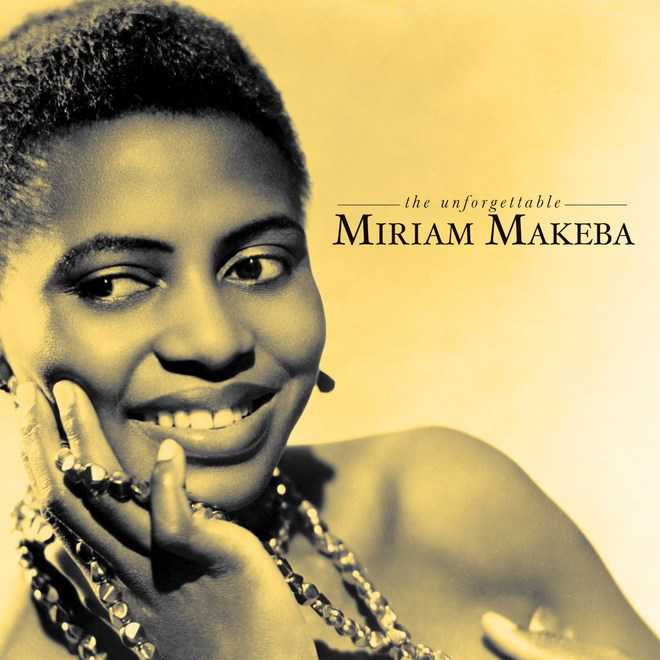For you, Makeba!
Amarjot Kaur
Taking a cue from Levi’s new advertisement, and Comedy Central’s background score for the sitcom F.R.I.E.N.D.S., we zeroed in on a song that never made its way to commercial charts. It has, however, to its credit a dedicated tribute to a well-known South African singer and songwriter during the 50s and 60s—Miriam Makeba.
Released last year, Makeba is a song by Jain and it peaked at number seven on the French Singles Chart. With multicultural pop music influences, the song is about Zenzile Miriam Makeba, also known as Mama Africa, who was a South African singer, actor, United Nations’ goodwill ambassador, and civil rights activist. She has been associated with musical genres, including Afropop, jazz, and world music, and was an advocate against apartheid and white-minority government in South Africa.
She began singing professionally in the 1950s, with the Cuban Brothers, the Manhattan Brothers, and an all-woman group The Skylarks, performing a mixture of jazz, traditional African melodies, and Western popular music.
In 1959, Makeba acted in the anti-apartheid film Come Back, Africa, which brought her international attention. In London, she met the American singer Harry Belafonte, who became a mentor and colleague. She moved to New York City, where she recorded her first solo album in 1960.
What is Makeba?
The urban dictionary defines Makeba as a person who is absolutely magnificent in every aspect a human being can be. It refers to someone who is an excellent friend, a fantastic lover, who is trustworthy and honest, yet attractive and absolutely gorgeous. Makeba is a person who is unselfish, understanding, and someone who may get lost in the darkness, only long enough to bring in the light. Makeba is someone who has the ability to soothe and calm a person in distress—someone who deserves the best. Makeba is a unique name for an incredibly special person. In short, Makeba is the one and only.
Mike check
Jeanne Galice, known professionally as Jain, is a French singer-songwriter. Her debut album, Zanaka, was released in November 2015. Born in Toulouse, France, she travelled the world from Dubai to Congo, which she credits for her taste for danceable melodies; and then spent a year in Abu Dhabi, before moving to Paris. These trips influenced her musical style. She also learned how to play drums in Pau, Arabic percussion in the Middle-East, and musical programming in Congo.
Jain began composing demo tracks in Pointe-Noire, Congo-Brazzaville. She then published her demo tracks on MySpace where Yodelice discovered her. Jain was a supporting artiste for Yodelice's tour and they performed a duet cover of Redemption Song. Yodelice became her producer and worked on her first EP, Hope; the EP's single "Come" that was featured in the American horror comedy web television series Santa Clarita Diet in 2017.
Her first album, Zanaka (meaning "child" in Malagasy) is a tribute to her mother who is of Franco-Malagasy origin. In 2016, she was one of the nominees at the Victoires de la Musique Awards in the category "Album Révélation" for her album Zanaka.
In February, she appeared on The Late Show with Stephen Colbert and in Later...with Jools Holland in April.
Voice of the people
A strong comment
In the video of this song, there comes a part where an African girl, dressed in a school uniform, is shown walking to her school with four people. That reminded me of a painting by Norman Rockwell, titled The Problem We All Live With. It depicts Ruby Bridges, a six-year-old African American girl, on her way to William Frantz Elementary School, an all-white public school, during the New Orleans school desegregation crisis. Because of threats and violence against her, she is escorted by four deputy U.S. marshals. On the wall behind her is written the racial slur “nigger” and the letters “KKK”. The song makes a very strong anti-racial comment as it eulogises Miriam Makeba.
Atul Bhardwaj,
works at HP AITUC
It’s exceptional
The beats, the lyrics, the video, the intent of the song, everything about it is exceptionally ‘Mabeka’! I am a huge fan of Miriam Makeba; I get that from my parents who would play her music on cassettes when I was young.
Devinder Singh Mahal, owner of Dev’s Cafe
Multi-cultural touch
It’s a beautiful song, very multi-cultural. I heard it a few days ago on TV and was wondering why it hasn’t made it to the commercial scene, but I am glad it’s making it to the ads, at least!
Varun Seth,
student at Panjab University










